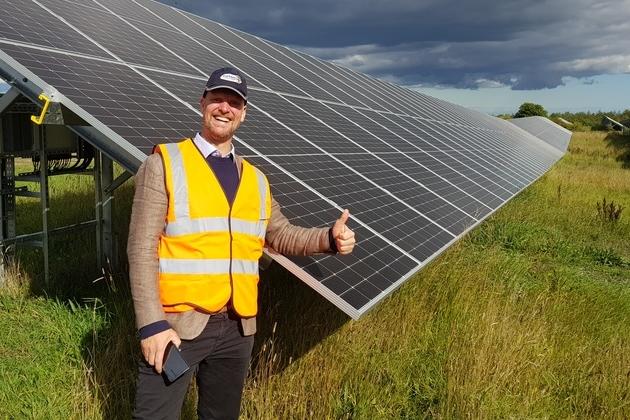New project to examine Solar Power Expansion

Tor Håkon Jackson Inderberg and his colleagues at the FNI (Fridtjof Nansen Institute) have every reason to celebrate: they have been granted over NOK 11 million for research on the driving forces and obstacles to solar power in Norway. Over the next four years, they will investigate what needs to be done to facilitate the expansion of solar power in Norway, as well as identifying pitfalls to be avoided.
‘Ten years ago, everyone was in favour of onshore windpower. However, once development got underway, Norway made several mistakes, and opposition to onshore windfarms has grown. Half the Norwegian population is opposed to onshore wind farms’. Now the Norwegian authorities must take care not to repeat the same mistakes in solar power expansion as they did with windpower development,’ Inderberg emphasizes. He himself is among the researchers who has closely followed the windpower debate in Norway over the past decade.
‘First and foremost, this new project will examine Norwegian conditions and the necessary regulatory changes. We will have the opportunity to contribute to improving the licensing processes, and conduct comparisons with Denmark and Sweden’, Inderberg explains.
As part of the project, the FNI collaborates with researchers from Lund University (Sweden), Aarhus University (Denmark), and the Institute for Energy Technology (IFE) in Kjeller (Norway). Project stakeholders include the Norwegian Water Resources and Energy Directorate (NVE), Energeia, Solenergiklyngen, as well as Norwegian municipalities like Søndre Land and Gjøvik.
The FNI researchers will study planning processes, building-mounted small-scale installations, and ground-mounted installations where licensing processes are involved. Conflicts can be expected over land use, such as agricultural and forestry interests, regulations, and nature conservation concerns.
Extensive development is expected
In the windpower debate, land conflicts and local participation became major stumbling blocks for the authorities, and support for windpower development plummeted.
‘Solar power in Norway is currently small-scale but offers significant potential for renewable energy development, especially as Norway faces a looming power deficit in the near future’, explains project leader Inderberg. ‘ In the new research project SOLNOR, we will examine the barriers, driving forces, and challenges for solar energy expansion, to gain the knowledge we need for navigating societal trade-offs, not least the challenges to infrastructure, land use, biodiversity, and resource management.’
This should provide an essential knowledge foundation for Norway's energy transition, in turn significantly helping Norway to achieve its climate goals.
Investing in solar power
Solar energy is one of the focus areas in the recently issued revised Norwegian national budget for 2023. The government has committed to facilitating the establishment solar parks, with the aim of developing a total of 8 TWh by 2030. Norway's total electricity consumption in 2021 was 139.5 TWh.
The project ‘Out of the shade? Solar development challenges in Norway (SOLNOR)’ is funded by the Research Council of Norway and has a budget of 11.4 million kroner over four years. Inderberg is joined by his FNI colleagues Per Ove Eikeland, Lars H. Gulbrandsen, Jon-Birger Skjærseth, and Ole Kristian Fauchald.
‘There may be further opportunities for recruitment as the project progresses’, adds Inderberg.
